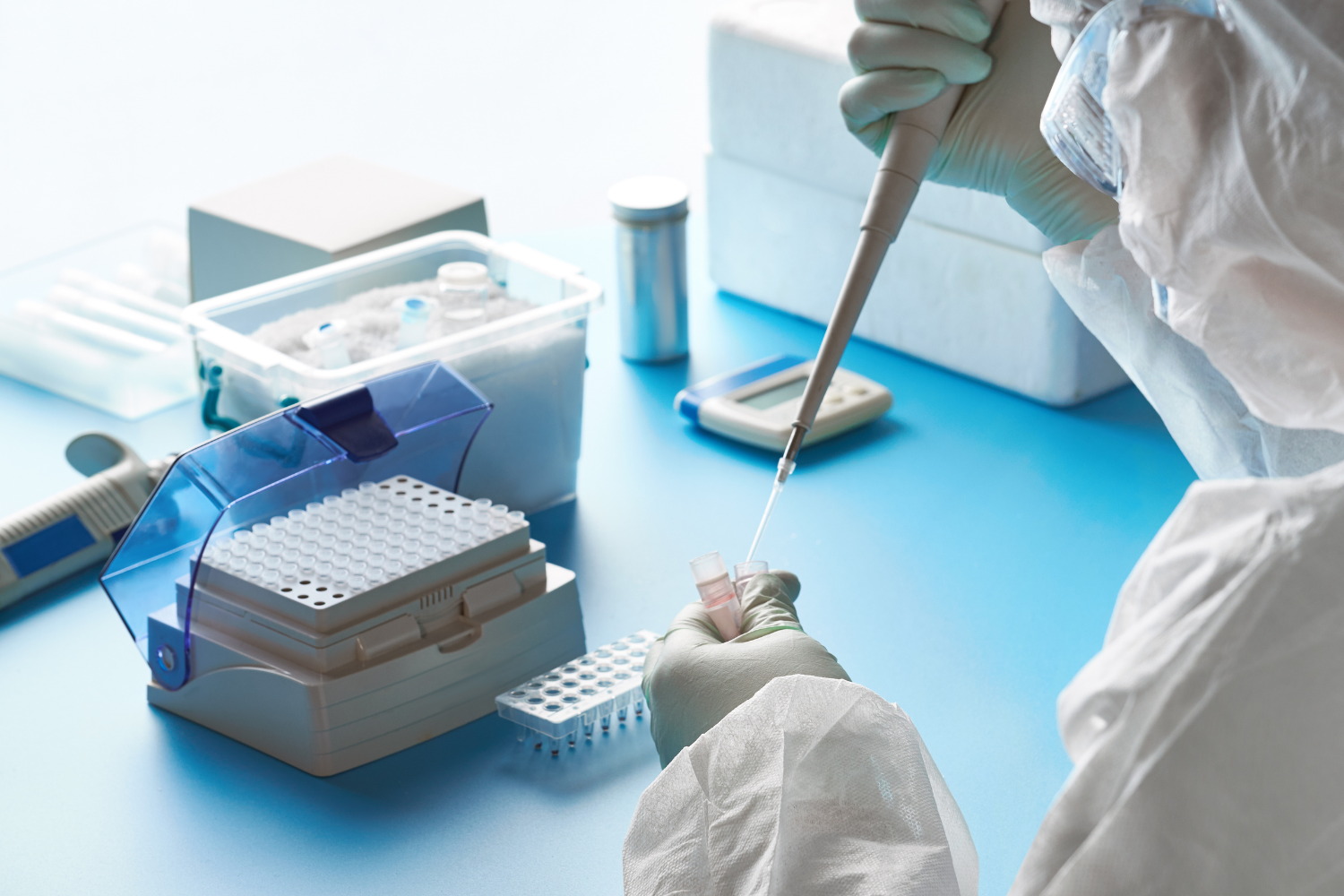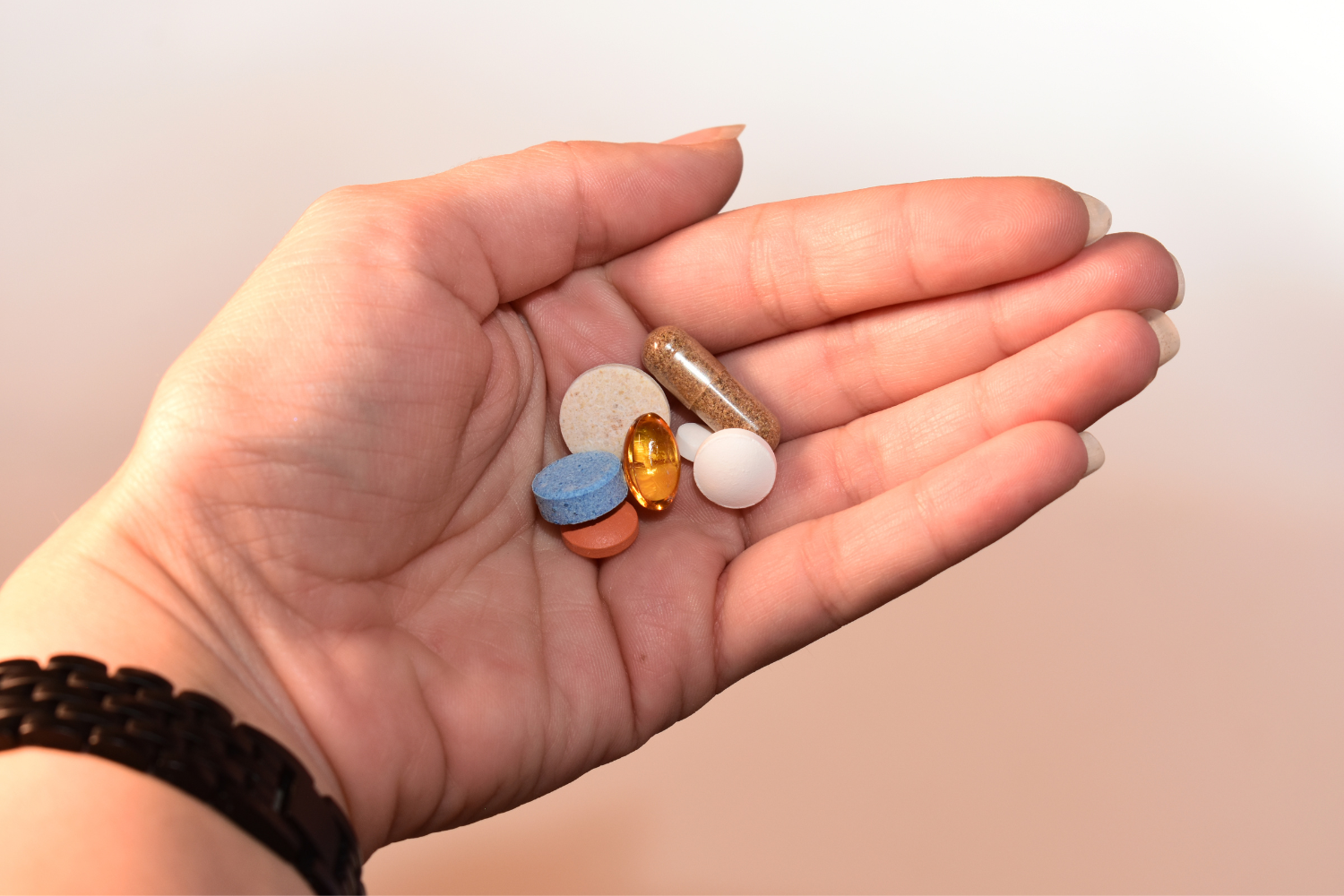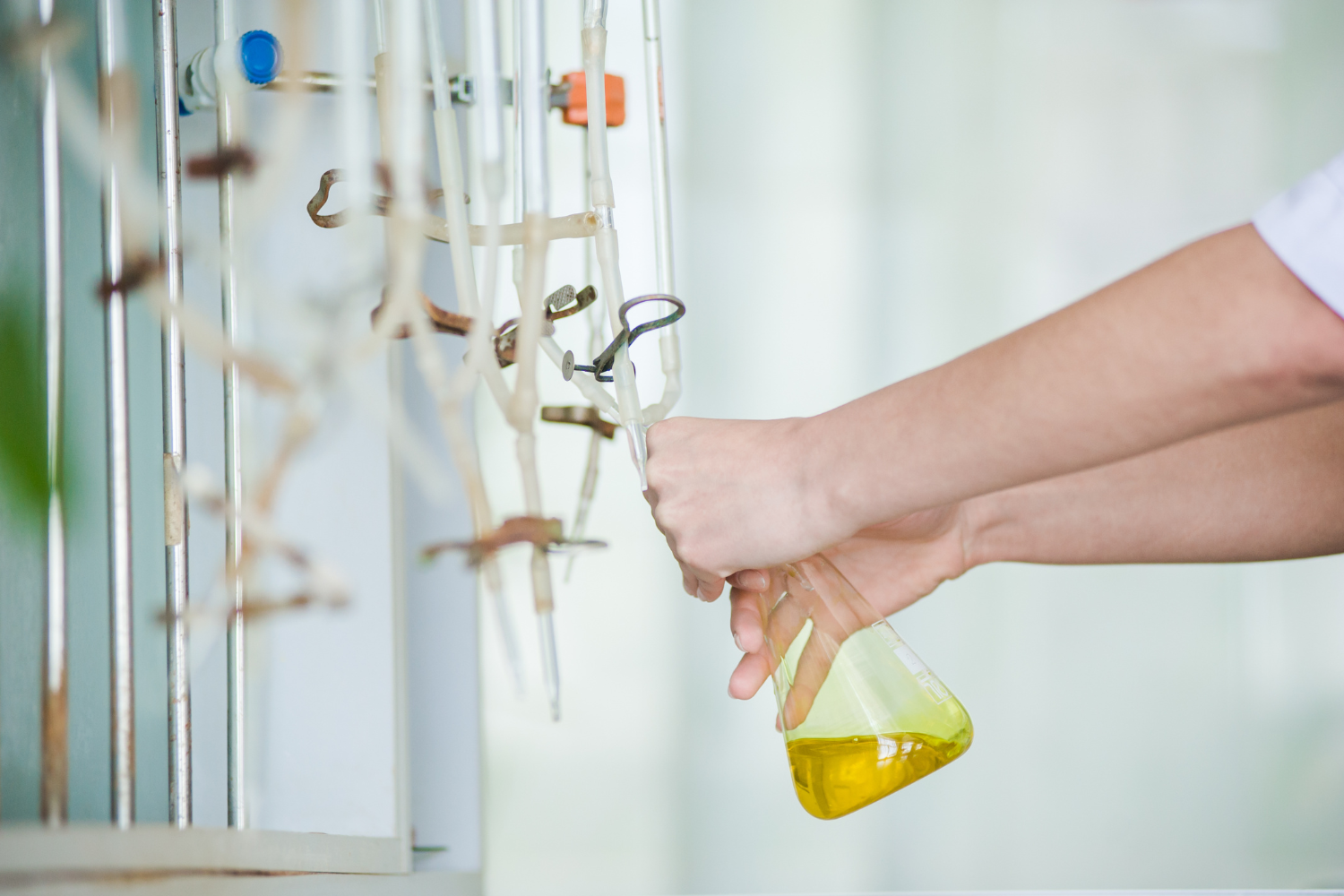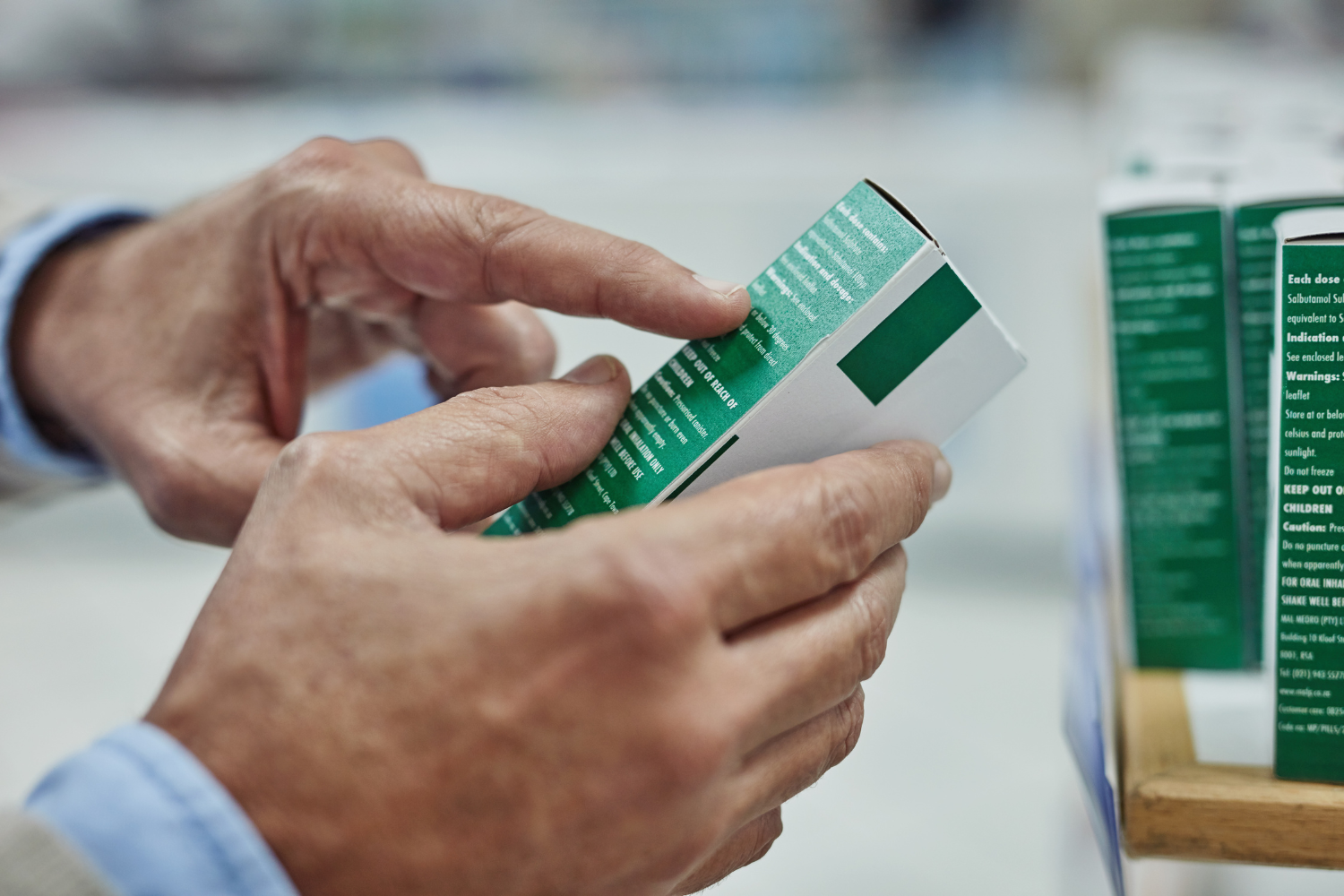The health and wellness industry has seen a surge in demand for high-quality, safe dietary supplements, with consumers prioritizing products that deliver on their promises. Third-party supplement testing provides independent verification of a product’s safety, quality, and label accuracy, ensuring it meets established standards.
This guide offers supplement brands a clear understanding of third-party testing, how to implement it effectively, and the benefits it brings in terms of consumer trust, compliance, and product credibility.
Table of Contents
ToggleWhat Is Third-Party Supplement Testing?
Third-party supplement testing is an independent evaluation conducted by accredited laboratories to verify the safety, quality, and accuracy of dietary supplement products. These evaluations verify that supplements meet specific quality and safety standards and support compliance with industry regulations. Unlike internal testing by manufacturers, neutral organizations carry out third-party testing to deliver unbiased results.
Third-party labs verify:
- Ingredient purity and potency to confirm the listed ingredients meet quality standards.
- Absence of harmful contaminants like heavy metals, pesticides, and microbes that could compromise safety.
- Label accuracy to ensure what’s listed on the product matches its actual content.
This neutral assessment builds trust and ensures that dietary supplements are safe and effective for consumers.

Why Is Third-Party Supplement Testing Important for Businesses?
Third-party testing is essential for supplement brands to maintain quality control, ensure regulation compliance, and gain a competitive advantage in the market. It plays a critical role in safeguarding consumer health and strengthening brand credibility.
Build Trust with Customers
Consumers today are more skeptical of supplement claims and increasingly demand transparency. Third-party testing provides evidence of product quality and safety, demonstrating adherence to established standards. Certification from independent organizations like NSF Certified or Informed Choice helps brands establish reliability, making consumers more likely to trust and purchase their products.

Ensure Compliance and Safety
Regulatory compliance is non-negotiable in the supplement industry. Testing supports adherence to FDA standards, Good Manufacturing Practices (GMP), and other international quality guidelines. Accredited laboratories use advanced methods like high-performance liquid chromatography and gas chromatography to detect contaminants and verify the purity of ingredients. These measures protect consumers and minimize the risks of unsafe products entering the market.
Stand Out in a Competitive Market
The wellness market is highly competitive, with manufacturers and brands vying for consumer attention. Third-party certification programs set products apart by confirming their quality and safety. Earning certifications such as the USP Verified Mark or NSF Certified label demonstrates a commitment to excellence, giving brands a significant advantage in the marketplace.
Reduce Liability Risks
Failing to test products can lead to costly recalls, lawsuits, and reputational damage caused by unsafe or mislabeled supplements. Independent testing reduces these risks by identifying potential problems during the manufacturing process. Verifying label claims, purity, and ingredient certification ensures compliance and prevents issues that could harm the brand and its customers.
What Do Third-Party Labs Test For?
Third-party labs evaluate supplements for quality, safety, and compliance. They focus on critical aspects like ingredient potency, contaminants, label accuracy, and allergens or banned substances to ensure products meet high standards.
Ingredient Potency and Purity
Labs verify the active ingredients in dietary supplements to ensure their potency matches label claims. This ensures consumers receive the advertised dosages and supports the intended use of the product. Purity testing confirms no unwanted substances, ensuring a reliable and effective product.
Contaminants
Testing identifies harmful contaminants that can compromise product safety. Labs check for:
- Heavy metals: Including lead, mercury, and arsenic.
- Microorganisms: Such as bacteria, yeast, and mold.
- Pesticides or herbicides: Residues from agricultural processes.
- Residual solvents: Leftover chemicals from the manufacturing process.
These tests reduce the risk of harmful contaminants and support compliance with industry standards.

Label Accuracy
Third-party labs test whether the product’s contents align with its label claims based on submitted samples. They evaluate the ingredients listed to confirm that all vitamins, minerals, and other components are present in the correct amounts. This process eliminates misleading claims and strengthens consumer trust in dietary supplement products.
Allergens or Banned Substances
Testing verifies whether supplements are free from allergens like gluten, soy, or nuts based on submitted samples and substances prohibited by organizations such as the World Anti-Doping Agency (WADA). This is particularly critical for athletes, military personnel, and other consumers with strict requirements, helping them avoid potential risks from positive drug tests or adverse reactions.
How to Get Your Supplements Third-Party Tested: Step-by-Step
Third-party testing involves working with accredited labs to verify your supplements’ quality, safety, and compliance. Follow these steps to get started:
Step 1: Choose an Accredited Third-Party Lab
Partnering with an accredited laboratory is essential for achieving reliable and unbiased results. Accredited labs follow stringent quality standards and have the necessary expertise in dietary supplements. Look for labs recognized by certifications like:
- NSF International
- Informed-Choice
- ConsumerLab
- Eurofins
Verify that the lab is equipped to meet your needs, such as ingredient analysis, quality control, or compliance with international safety standards. This step ensures your product undergoes thorough evaluation by a reliable third-party organization.

Step 2: Submit Your Product for Testing
Once you’ve selected a qualified lab, submit a sample of your supplement for analysis. Be prepared to provide detailed information about the product, including:
- A comprehensive list of ingredients, including active and inactive components.
- Intended label claims, such as health benefits or nutrient levels.
- Target outcomes for the testing process, such as confirming compliance or validating quality standards.
Accurate and thorough documentation helps the lab understand your product and ensures testing meets regulatory and market requirements. Ensure the sample is properly packaged to avoid contamination during shipment, as this could affect the testing results.
Step 3: Testing and Analysis
The lab conducts extensive tests to confirm your supplement’s safety, efficacy, and compliance. These tests evaluate:
- Purity: Ensuring the absence of harmful contaminants like heavy metals or microbes.
- Potency: Verifying that active ingredients meet the levels stated on the label.
- Contaminants: Screening for substances prohibited by organizations like WADA or unsafe residual solvents from manufacturing.
- Label Accuracy: Checking that the product contains only what is listed on the label.
The time required for testing can vary, with complex tests like high-performance liquid chromatography taking longer. Most labs complete the process within 1 to 3 weeks.
Step 4: Review the Results
After testing, the lab provides a detailed report summarizing the findings. This report will indicate compliance with quality standards or highlight areas that need attention. Common issues include discrepancies between label claims and actual ingredient levels or the presence of contaminants like pesticides or allergens.
Review these results carefully with your manufacturing team. Addressing discrepancies promptly helps you meet compliance requirements and ensures your product is ready for market. This step is critical for protecting your brand’s reputation and maintaining consumer trust.
Step 5: Obtain Certification or Verification
The lab will issue a third-party certification or verification seal if your supplement meets all testing criteria. Examples include:
- NSF Certified or USP Verified Mark for product quality and safety.
- Informed-Choice Tested for banned substance screening.
- Certified for Sport® for products marketed to athletes.
Display these certifications prominently on your product packaging and marketing materials. They signal to consumers and retailers that your product meets stringent safety and quality standards, enhancing its appeal in a competitive market.
How Much Does Third-Party Supplement Testing Cost?
The cost of third-party supplement testing depends on factors like the type of tests conducted, the number of samples submitted, and the lab’s expertise and certifications. Common tests include checks for purity, contaminants, and allergens, with fees ranging from $300 to $2,000 per product. Advanced testing methods like high-performance liquid chromatography or gas chromatography may add to the cost.
While the initial investment may seem significant, it can lead to long-term benefits such as increased consumer trust, fewer liabilities, and stronger market positioning. Businesses that prioritize third-party testing often find that the credibility and safety associated with certification enhance their competitive edge.

What Are the Benefits of Displaying Third-Party Testing Seals?
Displaying third-party testing seals on your product packaging signals to consumers, retailers, and partners that your supplements are safe, high-quality, and trustworthy.
Increases Customer Confidence
Third-party verification seals from organizations like NSF International or Informed-Choice assure consumers that your product meets rigorous quality standards. Customers trust supplements with visible certifications, knowing they’ve been independently tested for purity, efficacy, and label accuracy. This transparency builds loyalty and encourages repeat purchases.
Differentiates Your Brand
In a competitive supplement industry, standing out is critical. Displaying third-party certification programs sets your brand apart by demonstrating a commitment to safety and transparency. Shoppers are likelier to choose brands they perceive as reliable, especially in a market where trust influences purchasing decisions.
Enhances Credibility for Retailers and Partnerships
Retailers and distributors prioritize stocking products with third-party certifications. Verified supplements are seen as less risky and more appealing to consumers, making them a preferred choice for retail shelves. These certifications also strengthen your credibility when forming partnerships with gyms, wellness clinics, or international distributors.
Attracts Health-Conscious and Performance-Driven Audiences
Health-conscious consumers, athletes, and fitness professionals look for supplements that meet their strict safety and performance standards. Third-party testing verifies that your products meet established safety and quality standards based on submitted samples. This makes your brand appealing to gyms, wellness influencers, and athletic organizations looking for independently tested nutrition products.

How to Choose the Right Third-Party Testing Lab
Selecting the right lab ensures accurate and reliable dietary supplements and nutritional products testing results. Evaluate labs carefully based on these key factors.
Check for Accreditations
Choose a lab that is ISO-accredited and adheres to Good Laboratory Practices (GLP). These certifications ensure the lab follows international quality standards for testing methods, sample handling, and result accuracy. Accredited laboratories are more likely to deliver recognized and trusted results across the supplement industry.
Experience in Supplement Testing
Partner with a lab specializing in dietary supplements, nutrition products, and ingredient certification. Experienced labs understand the nuances of testing for contaminants, potency, and banned substances in vitamins, minerals, and other supplements. Their expertise ensures reliable results that align with industry-specific needs and regulatory requirements.
Reputation and Certifications Offered
Verify the lab’s reputation by checking reviews, client testimonials, and case studies. Ensure they offer certifications like NSF Certified, Informed-Choice Tested, or ConsumerLab Verified that add credibility to your product. A reputable lab with a history of successful certifications can boost consumer confidence and brand trust.
Turnaround Time and Cost
Confirm the lab provides efficient turnaround times for results, typically within 1 to 3 weeks, depending on the complexity of the tests. While cost is a factor, avoid compromising quality for lower prices. Choose a lab that balances affordability with thorough and accurate testing to support your product goals.
Why Third-Party Supplement Testing Matters
Third-party supplement testing is critical for ensuring product quality, safety, and consumer trust. Investing in independent testing enhances your brand’s credibility, reduces liability risks, and sets you apart in a competitive wellness market.
Partnering with accredited labs to achieve third-party certifications like NSF Certified or Informed-Choice Tested is essential for building trust and growing market reach. Businesses that prioritize testing position themselves for long-term success in the supplement industry.
Frequently Asked Questions
Is Third-Party Testing Required by Law?
While not mandatory, ensuring compliance with FDA and GMP standards is highly recommended.
How Often Should Supplements Be Tested?
Test every new batch, especially when changing ingredients, formulas, or suppliers.
What Happens If a Product Fails Third-Party Testing?
You can reformulate the product to address issues and retest for compliance.
Can Third-Party Testing Help With FDA Compliance?
Yes, it verifies product quality, safety, and accurate labeling, which are key FDA requirements.
Which Certifications Are Most Trusted for Supplements?
Consumers and retailers trust certifications like NSF Certified, USP Verified, and Informed-Choice Tested.
References
- Centers for Disease Control and Prevention (CDC). (2024). About Lead in Consumer Products. https://www.fda.gov/food/guidance-regulation-food-and-dietary-supplements/current-good-manufacturing-practices-cgmps-food-and-dietary-supplements
- International Organization for Standardization (ISO). (n.d.). ISO/IEC 17025 — Testing and calibration laboratories. https://www.iso.org/ISO-IEC-17025-testing-and-calibration-laboratories.html
- U.S. Food and Drug Administration (FDA). (2024). Current Good Manufacturing Practices (CGMPs) for Food and Dietary Supplements https://www.fda.gov/food/guidance-regulation-food-and-dietary-supplements/current-good-manufacturing-practices-cgmps-food-and-dietary-supplements
- U.S. Food and Drug Administration (FDA). (2024). Dietary Supplements. https://www.fda.gov/food/dietary-supplements
- U.S. Food and Drug Administration (FDA). (2017). Guidance for Industry: Dietary Supplement Labeling Guide. https://www.fda.gov/regulatory-information/search-fda-guidance-documents/guidance-industry-dietary-supplement-labeling-guide




